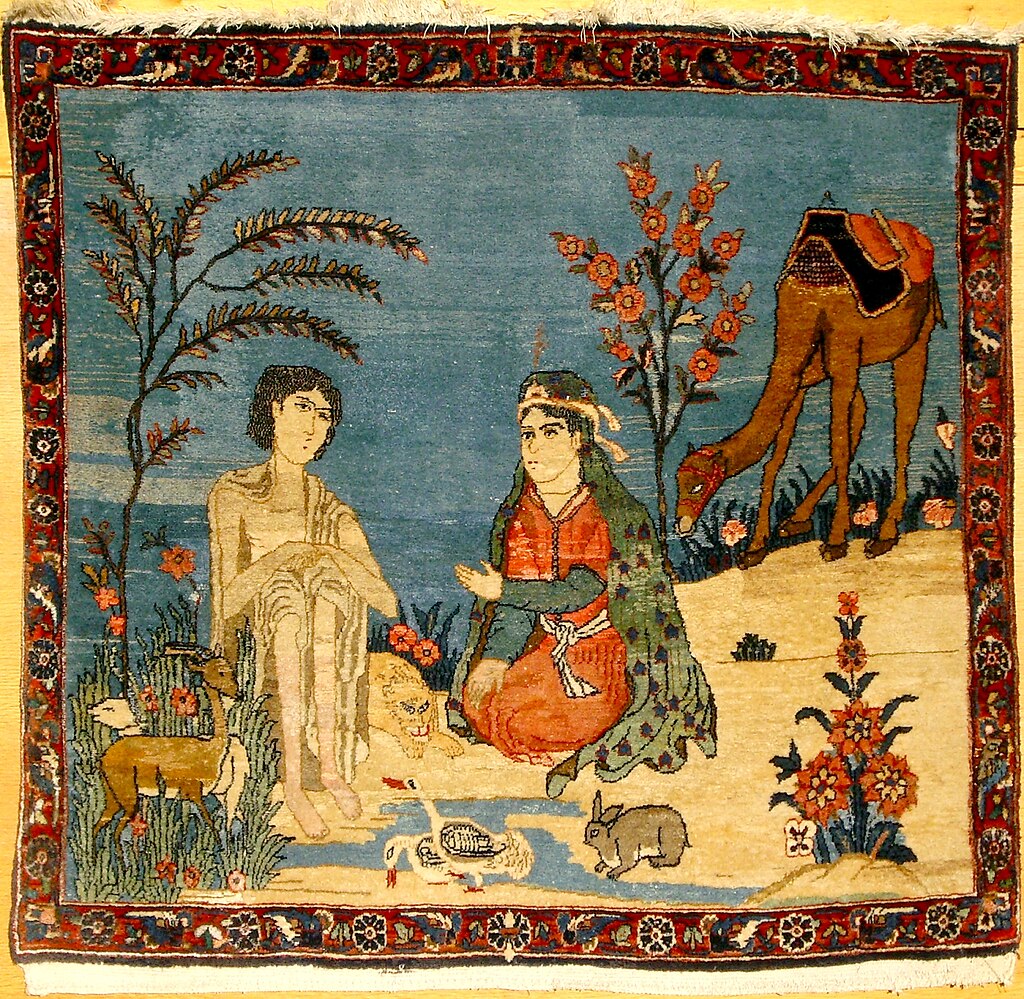Nezami Revisited
A Response to Leyli and Majnun

Author’s Introduction
One of the greatest works of the Persian poet, Nezami Ganjavi (1141–1209), is Leyli and Majnun, an adaptation of a well-known love story from the Arabian peninsula about the star-crossed love of Leyli and Qays, who becomes known as “Majnun” (“Crazy”) after his longing for Leyli drives him to live as a hermit in the wilderness. Leyli and Majnun is a tale of separation and frustration, where the lovers are united only shortly before their deaths. The unrequited love between Leyli and Majnun is an allegory for the longing soul that yearns for union with the divine. Although an enduring love story that is steeped in spirituality, the conventions of medieval Persian poetry, with the seemingly endless and often repetitive descriptions of the Beloved, make this a difficult read for the modern reader. The poem I have written here, imitating Nezami’s use of rhyming couplets, is a tongue-in-cheek response to the great poet from the perspective of a modern reader.
A Response to Nezami Ganjavi’s Leyli and Majnun
Mister Ganjavi, I must comment
about this poem which hath my heart rent.
I’d never dream to make light of your work —
though centuries past, its text has made its mark.
But criticism’s not the wise man’s fear
and I intend to make critiques quite clear.
To begin, your epic’s rather fluffy.
It’s padded like a pillow, windy, huffy,
A chapter on Leyli’s looks, for what?
Was that required, just to say “she’s hot?”
And how often must Majnun nearly die
So you can prove his love to passers-by?
Does he deserve this fate, oh heartless man?
Give him some privacy, or else a hand!
And what is more, this bloat bespeaks derision.
Respect your reader, give us more concision.
We read between the lines, we’re not all fools.
We know that Majnun’s eyes are finest jewels,
that downy hair upon his fair face sprouts
that salty tears flow from his eyes in gouts.
The stock descriptions in your verse are fine
but not when they appear line after line!
A few discerning edits are quite needed.
I know it’s far too late, I’ll go unheeded
for you’re now dead, and you deserve your rest
and I must go to sleep, I have a test.
But if you’d send down from heaven new editions
I’d offer you some pro bono revisions:
Oh pen-bearer, let red ink flow like wine
And if you have no ink to use, take mine!
I’ll bleed it through the page, and give my heart
to save Majnun from this cruel poet’s art.
He suffers greatly, but he never changes.
His character is flat; in all exchanges
he repeats his sole obsessive aim
and flattened characters bring naught but shame.
And Leyli’s character’s more than her beauty
at minimum, she should be kind or witty!
(And why is it the woman’s always sought,
not seeker— that would seem to call for thought.
But never mind, I’d hate to match your fault,
and to this tangent I must call a halt.
Brevity’s the soul of wit, some say
though they clearly lived not in your day.)
Beyond this, shortening would help a lot
and if you think this poem’s short, it’s not!
Two-forty pages come one at a time
full of couplets of your tedious rhyme
I know the style’s standard, that’s well-known
but please, these couplets cut me to the bone!
I think at least for every fifty verses
ten can be cut— please spare me all your curses!
I do not mean to mock— at least not much
but if you had submitted this as such
we’d send it back with plenty of removals;
until you fixed it, we’d withhold approval.
Thus end my brief remarks on your great epic.
I must admit that I’m not as ascetic
as you are, I may lack your blazing fire
that scorches you on God’s great mighty pyre.
But please, recall you write for human people
and it would help us were your verse more readable.
GIDEON GORDON is a student at Boston University studying Middle East and North Africa Studies and International Relations. He is an associate editor at the Boston University International Relations Review.


